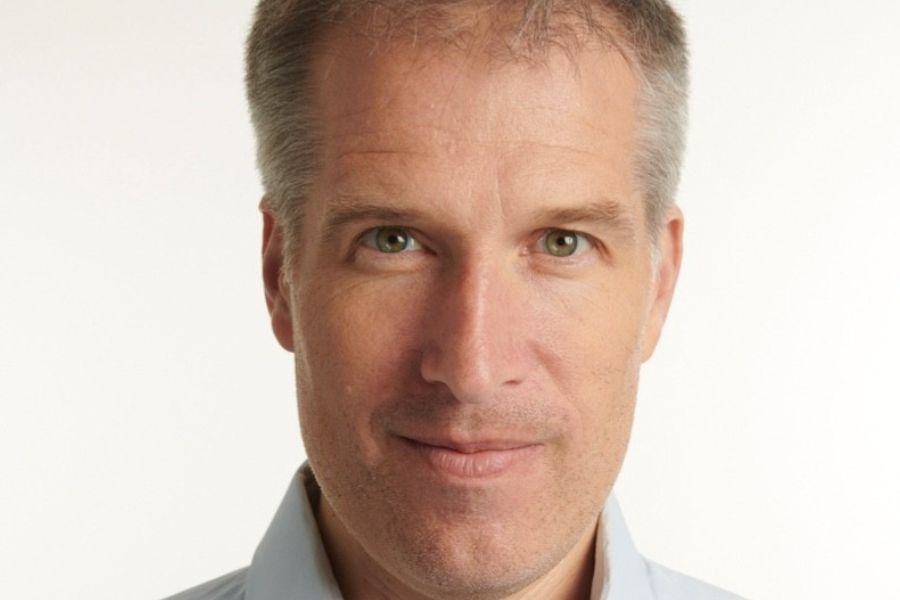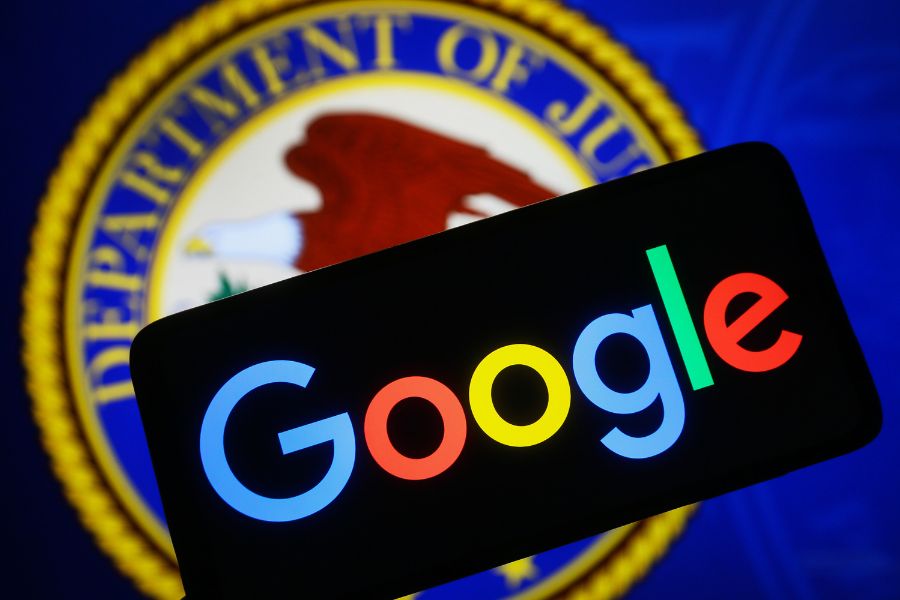When seeking an expert opinion on the state of the adtech today, Brian O'Kelley undoubtedly comes to mind.
An industry veteran today, in 2007 O'Kelley established AppNexus (now Microsoft's Xandr) and held the roles of chief executive and chairman until its acquisition by AT&T years later. Pre-AppNexus, he played a foundational role at Right Media as its chief technology officer before Yahoo acquired it in 2007.
Nicknamed the 'Godfather of adtech', O'Kelley pioneered the online ad exchange and introduced various pivotal technologies such as demand-side platforms (DSPs), supply-side platforms (SSPs), data exchanges, real-time bidding, and header bidding. His contributions have significantly shaped the industry's comprehension of programmatic advertising technology.
Now, as the founder of Scope3, O'Kelley helps advertisers understand and reduce their advertising-related emissions through a methodology that measures the end-to-end emissions of an ad's delivery across the entirety of the digital supply chain.
From there, advertisers can include the price of offsetting those emissions into ad delivery to reflect the actual cost of digital advertising.
The platform has since raised US$20 million in new funding from venture-capital firm GV, Room40 Ventures and Venrock, which was announced after this interview.
So why is O'Kelley trying to 'undo' his work 16 years later when he could be kicking back and enjoying his retirement?
Campaign sat down with O'Kelley on his first trip to Singapore to find out just that. Also covered: Why he's trying to make adtech more sustainable, if he would have done anything differently, and the evolution he's seen in the industry.
'Undoing' his work
O'Kelley began his journey at AppNexus with a mission to enhance the Internet by improving advertising.
Although he claims the company achieved some of its goals, he felt that AppNexus did not ultimately win the battle. Selling the company seemed like the right move, but it left him with unfinished business around programmatic advertising.
"What truly energised me at AppNexus was the remarkable team I had the privilege of working alongside. Watching individuals transition from fresh college graduates to outstanding leaders was immensely rewarding," O'Kelley tells Campaign.
"This dynamic of collaborating with a team on a mission striving to make a significant impact is unparalleled. It's why many of us engage in team sports or collective activities; there's a joy in working together towards a common goal."
O'Kelley continues: "This has been a recurring theme; even during high school, I led ventures with friends. There's nothing more fulfilling to me than embarking on meaningful experiences with dedicated individuals. Two of my co-founders at my new venture started their careers at AppNexus, and witnessing their growth and now co-founding a company with them feels incredibly special."
Post-AppNexus however, O'Kelley says a looming concern often keeps him awake at night.
He constantly grapples with the worry that the industry is not progressing swiftly enough, as the enormity of the challenges is overwhelming.
"I frequently find myself drafting emails or jotting down ideas in the dead of night, thinking of all the initiatives we should undertake," says O'Kelley.
"But then reality sets in; with a team of 40, there's only so much we can achieve. This constant push and pull of ambition versus reality is my concern."
As a private citizen, O'Kelley and his family are heavily directing their philanthropic efforts towards environmental causes, which holds significant personal value to them.
O'Kelley also sees himself as an industry activist, consistently advocating for a 'superior Internet' founded on enhanced principles.
However, he draws the line at calling out agencies and brands. While he calls Duncan Meisel, the executive director of Clean Creatives, 'a friend', O'Kelley reckons Clean Creatives' 'F-List', which calls out agencies that work with fossil fuel clients, is something he wants to avoid doing.
"I have a particular concern regarding the F-List, as someone will accept Shell's money (no matter what). I have had numerous conversations with Duncan about this," explains O'Kelley.
"While I sincerely appreciate the pressure they are applying to agencies and the inspiration they provide to employees, I harbour reservations about the realism of expecting no agency to accept Shell's money currently."
He adds: "Duncan and I do not fundamentally disagree. To me, it revolves around how we can assist brands in reducing their carbon footprint in manners that are sensible for business, but still beneficial for their marketing. It may even be pragmatically activist. To clarify, I'm a pragmatist, not an uncompromising idealist."
Being a pragmatist, O'Kelley started Scope3 to focus on carbon footprint measurement for every ad impression.
He has spent the last year educating advertisers on Scope3's methodology and collaborated with various supply-side platforms (SSPs) to develop green media products that automatically remove the worst climate risk inventory for buyers.
A notable launch was 'Climate Shield', an exclusion segment within demand-side platforms (DSPs) designed to block the most harmful inventory from Made-For-Advertising websites.
In addition, Scope3 introduced its website, which showcases all its data, allowing users to explore sustainable publishers, compile lists, and analyse inclusion metrics directly through the platform. More on that later.
In 2023, the emphasis shifted towards converting Scope3's methodology into actionable, user-friendly products.
"We are also developing a collaborative sustainability platform to streamline how data is automatically shared sustainably among all stakeholders. An extensive amount of product development has complemented this innovation," explains O'Kelley.
"On the commercial front, we have been determined to establish a presence in every market, given our work with global agencies. This necessitates a global approach because measuring only in convenient locations is not an option in addressing this worldwide issue. Our team has nearly quadrupled in size from a year ago, showcasing growth on every front, and, undeniably, it has been a hectic period for us."
The state of sustainability in advertising
According to Scope3, nearly every request-for-proposal (RFP) from brands and agencies now includes questions about sustainability, and most marketers have corporate sustainability objectives or reports.
With impending regulations in Europe, California, Australia, and France, adherence to sustainability practices will soon become mandatory, hence the increased questions in RFPs.
"Agencies have demonstrated a knack for capitalising in various situations. They will navigate through privacy, AI, or retail media. So, sustainability has become their new domain of expertise," explains O'Kelley.
"There is an element of enthusiasm because they can utilise sustainability as a differentiator instead of it being a practice employed by others. We have observed some apprehension, primarily from the usual suspects. Publishers, for instance, express concern about the additional work and the impending new requirements. However, the overall reception has indeed mainly been positive."
Complex supply chains often hide the carbon emissions associated with digital advertising, so Scope3 allows visitors to its website to type in any domain and see the duplication.
"The solution is well-known: Don't resell them and be cautious with other SSPs. This approach forms 95% of the key to programmatic advertising, so the real question is, how long will it take to implement fully?" asks O'Kelley.
"The Trade Desk has presented its solution, opting not to work with SSPs that exert substantial pressure on the ecosystem. More companies must require direct connections to publishers, which benefits the SSPs."
O'Kelley notes that a common theme has emerged in his conversations with CEOs of significant SSPs. These CEOs are worried about the cost in both financial and carbon terms, and it is a practice they continue because it is an industry norm.
"It would be a tremendous service if a collective move could be orchestrated to eliminate this practice simultaneously. In attempting to navigate this, I'm applying enough pressure on the entire ecosystem and facilitating a shift to a different equilibrium, considering we've stabilised," explains O'Kelley.
Ultimately, for company CEOs to assess the environmental impact of their advertising, they need to understand the consequences of their actions.
For example, the primary difference between brand safety, viewability, and privacy compared to carbon management is the broader impact of the latter, extending beyond just advertising concerns.
While CEOs may not consider ad viewability vital, they prioritise sustainability and reducing carbon footprint. A CMO's announcement of a reduced carbon footprint carries more weight than improvements in viewability.
While institutions like the IAB struggled with authoritative influence in areas like brand safety, they don't control the narrative around sustainability. The ultimate goal is to become a zero-carbon industry by addressing all sources of emissions.
O'Kelley urges companies to their partners, whether it is agencies, adtech vendors, or publishers, to alter their practices. The process can be measured, reduced, and then iterated.
"It's important to note that the primary objective of companies is to sway consumer behaviour through advertising," says O'Kelley.
"They won't compromise on the efficacy of their advertisements. Our responsibility is to minimise waste, ensuring their advertising is more effective and eco-friendly."
The future of programmatic advertising
As he is still in the programmatic game, on the other side of the fence, O'Kelley has several significant concerns.
The first concern is that the shift from cookies to fingerprinting could confuse users and raise emissions and privacy issues. Secondly, O'Kelley worries publishers might become more aggressive in auctioning ads to maximise revenue.
Finally, he is also concerned that the rise of mandatory logins on websites may compromise user anonymity, leading to the widespread sharing of personal details with advertisers.
"When discussing first-party data [if for instance] you log into a random newspaper's site, they essentially possess only your email. The site lacks substantial first-party data on you, especially for users like me, who often utilise temporary or fake email addresses," explains O'Kelley.
For example, O'Kelley foresees big tech firms like Google, Apple, and Amazon having disproportionate knowledge about consumers, which means first-party data could be overshadowed by 'Google party data' as these giants dominate user data and browsing experiences.
"With tech behemoths controlling our data and browsers, users might relinquish control over their digital lives. Since most of my life is digital, I prefer a future where individual control is retained. We should actively pursue it if there's a way to steer towards that outcome," says O'Kelley.











